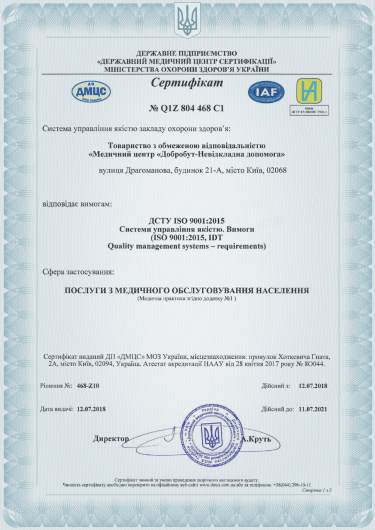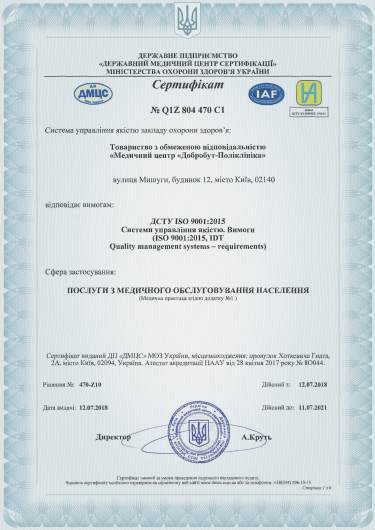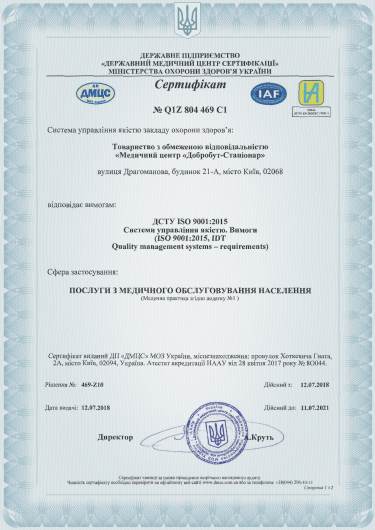Endocrinology
The endocrine system is part of a very large and complex human hormonal system. How it works depends not only on well-being, but also on the state of health, because hormonal imbalance, which can lead to any failure in the work of this system, can cause a number of systemic diseases.
One of the main organs of the endocrine system, which are responsible for the production of the amount of hormones necessary for vital activity, are the thyroid and pancreas, as well as the adrenal glands.
The thyroid gland produces two types of hormones: thyroxine and triiodothyronine, which contain iodine, and calcitonin, a hormone responsible for calcium metabolism in the body. The production of these hormones is controlled by the pituitary gland, which synthesizes thyroid-stimulating hormone.
These hormones are responsible for thermoregulation, participate in energy metabolism and affect the functioning of the nervous system. Various processes in the body can lead to the disease, which either reduce the production of hormones by the thyroid gland, or increase their amount.
The pancreas produces insulin, a hormone that affects metabolism, namely, is involved in carbohydrate metabolism and plays an important role in glucose utilization. It is because of the lack or excess amount of insulin produced by the pancreas that diseases such as obesity and diabetes appear.
The adrenal glands produce hormones of the corticosteroid class, whichThese include, for example, cortisol and sex hormones, which affect the production of hormones in the reproductive system, both female (estrogen) and male (testosterone).
An excess or lack of certain hormones can lead to a change in the state of absolutely all organs and tissues of the human body. To prevent the development of serious diseases, it is important to regularly undergo preventive examinations to assess the state of the endocrine system and early detection of diseases that arise due to hormonal imbalance.
Diagnostics

Instrumental diagnostics
Ultrasound diagnostics is the most common and the most informative method of instrumental diagnostics of endocrine disorders. An endocrinologist or a diagnostician assesses the structure and the shape of endocrine glands and detects nodes, formations and tumours in the thyroid using ultrasound diagnostics.
Patients with endocrine pathologies can get a classic type of instrumental diagnostics – ultrasound of thyroid, suprarenal glands, abdominal and small pelvis organs – in Dobrobut clinic chain. The expert ultrasound is performed in Dobrobut clinic chain with the use of elastography technology that helps in the targeted examination of elasticity of thyroid gland nodes. Ultrasound elastography allows obtaining more information about thyroid nodular formations that is important for clinical assessment of the node as for the risk of malignant process.
If you require more detailed information about the state and the structure of thyroid, you should use magnetic resonance imaging (MRI) or intravenous contrast computed tomography (CT) that enhances clarity and detailing of the image. Densitometry is used to determine bone density and to assess the risk of fractures and diagnostics of osteoporosis.
Laboratory diagnostics
Laboratory diagnostics plays an important role in diagnostics of endocrine diseases that helps to reproduce the full clinical picture.
Laboratory tests along with instrumental diagnostics are prescribed in Dobrobut clinic chain with the following purposes:
- determining of thyroid endocrine profile (labs for TSH, T4V, T3V) and autoimmune diseases (TPOAb, TgAb);
- detection of oncological processes (analysis for calcitonin);
- determining of parathyroid state (analysis for parathormone, ionized calcium, inorganic phosphorus, vitamin D);
- determining of endocrine pathology of the pancreatic gland (analysis for determining of blood glucose level, glycated hemoglobin, insulin, C-peptide, proinsulin, HOMA index);
- diagnostics of endocrine profile of suprarenal glands (cortisol, renin, aldosterone, adrenalin, noradrenaline);
- determining of endocrine profile of reproductive glands (testosterone, estradiol, DHEA-sulfate, 17-oxyprogesterone, dihydrotestosterone);
- determining of endocrine profile of hypophysis (prolactin, intestinal cell-stimulating hormone, follicle-stimulating hormone, adrenocorticotrophic hormone, vasopressin).
Main laboratory tests that you can have in Dobrobut clinic chain to establish a diagnosis:
- glucose tolerance test;
- tests for all hormone panels;
- fine-needle aspiration (FNA);
- molecular genetic testing with the use of FNA samples for diagnostics of well-differentiated carcinomas.
Glucometry is referred to determine blood glucose level during the day and to assess the state of carbohydrate metabolism. The method is effective and informative to support the health status of a pancreatic diabetes patient.
Fine-needle aspiration is used as a follow-up examination of a nodular malignancies and microscopic investigation of cells.
Endocrinology services for adults in Dobrobut:
Our advantages
Choose the clinic closest to you
ISO certificates



Accreditation certificates



Medical practice licenses




















%402x.png)
%402x.png)
